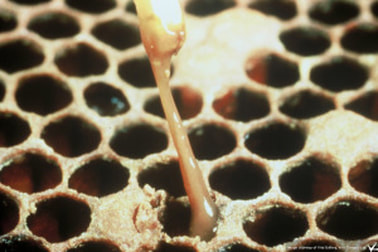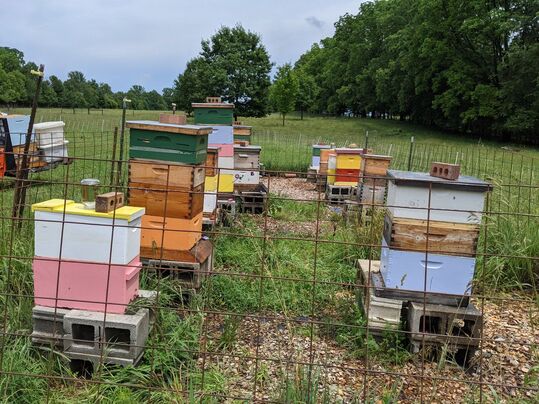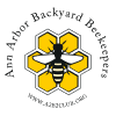 American Foulbrood rope test (Vita Bee Health) American Foulbrood rope test (Vita Bee Health) AFB American Foulbrood or AFB is a serious, highly contagious, and fatal bacterial disease in honey bees. It does not affect humans. The bacteria, Paenibacillus larvae, is fed to the bee brood as a spore from contaminated honey and then turns vegetative (reproductive) in the gut of the bee larva. This disease effects the bee brood typically after it has been capped, and instead of developing into a pupa and eventually an adult under the wax cap, the larva turns into a mass of bacterial goo containing millions to billions of spores. Less than 10 spores are needed to cause infection in a new larva. Burn Because this disease is so serious and contagious, infected hives must be quarantined and no equipment shared with any other hives. Though able to be controlled with antibiotics, the recommended treatment for a small operation is closing up the affected hive at night, digging a hole, placing the whole hive in the hole, burning it, and then burying the ashes. Some states REQUIRE you to do this. It may seem extreme, but the spores of AFB remain infectious for more than 80 years and are not destroyed through any common sterilization techniques. AFB is the main reason new beekeepers should not purchase old equipment, especially frames, from sources such as Craig’s List. Caramel Signs of AFB include a spotty brood pattern, caramel colored brood, sunken wax cappings often with holes in them, near black scales in brood cells that are impossible to remove, snotty/ropey larval goo, a foul or rotting smell, and a structure called a pupal tongue in brood cells (a thin, dark, pointy structure crossing the cell). While some of these signs can be seen with other brood diseases, the hard, black scales, larval goo ropes of at least 3.5cm, and pupal tongues are only seen with AFB. There are three tests for AFB: 1) Commercial Kit (similar to a COVID or pregnancy test), 2) Match Stick/Rope Test, 3) Holst Milk Test. More Information: https://www.youtube.com/watch?v=caliX8JZJ2s
0 Comments
Leave a Reply. |
AuthorJen Haeger is a new master beekeeper and board member of A2B2. Archives
August 2022
Categories
All
|


 RSS Feed
RSS Feed
